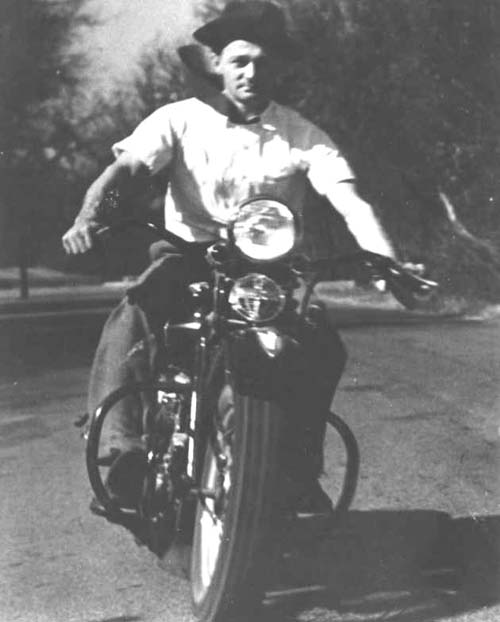
Editor’s Note: Sounds official, like I might tell you this guy is fulla shit before we get started. That’s not the case. We’ve wanted to bring you the skinny on using insulated exhaust wrap for a year or two. Larry Curik is a close friend and a classic custom bike builder. He offered and I decided to wait him out, since he’s been in the biz as long as I have. He’s starting his own shop, Lone Star Choppers, Inc. Gotta give a brother a break. Here is the long-awaited tech. Let’s get to it.

Note: It takes more material than you think so I wrap the pipe loosely andadd about ten feet to cover one pipe. You never want to come up short
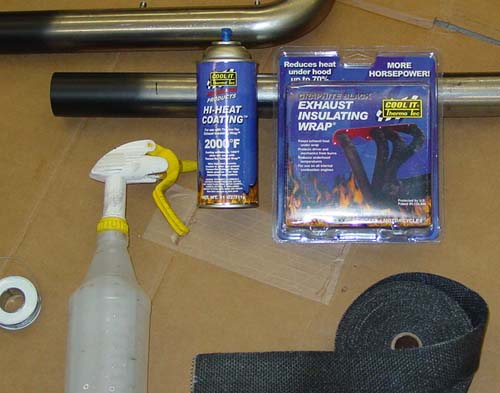
It’s a simple operation so Larry started by laying out everything that you will need(except the rubbergloves), water spray bottle, high heat paint (for the area left un-wrapped),stainless steel safety wire and Thermo-Tec insulating wrap.
Looks like you can buy this at any hot rod shop or Pep Boys.
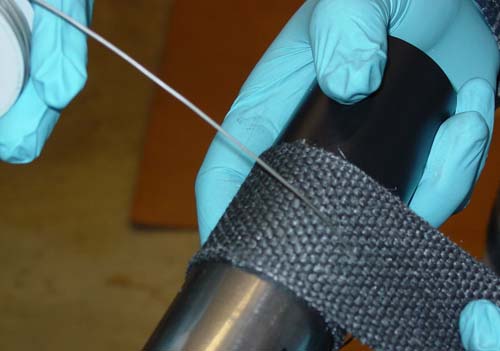
Take 1 full wrap and secure it with safety wire (position so as not toshow with next wrap, (insert through the wrap and twist wire tight). Use glovesbecause wrap is impregnated with graphite and contains fiberglass. It can makea big uncomfortable mess.
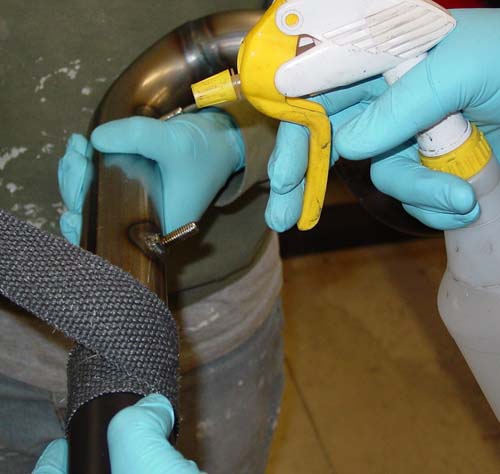
Continue to wrap, overlapping ½ of the last wrap with each turn. Spray the material lightly with water tohelp it conform to the shape of the pipe.

If you wet it down really good, it is very easy to pushmounting studs through the wrap.
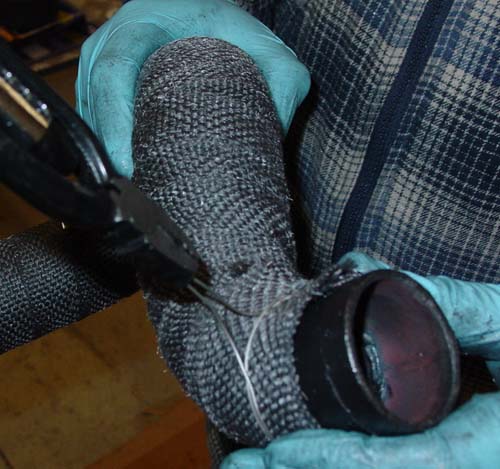
Tie the finished wrap with a double wrap of safety wire, or you canuse hose clamps. Larry starts wrapping from the end of the pipe, so the leading edge is not exposed and is clean as possible.
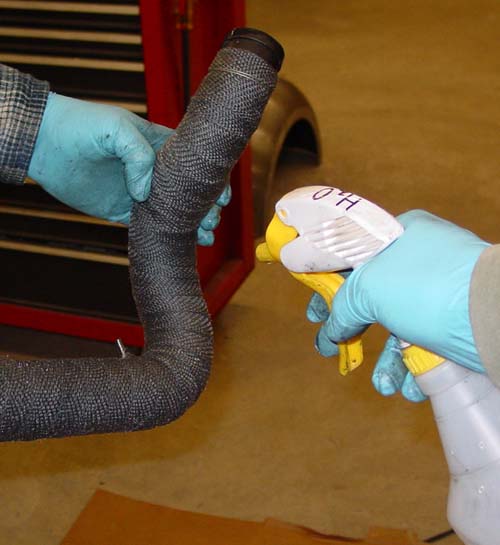
Lightly wet the entire pipe and “wring” (massage it), it to make the wrappingmold to the pipe. Set the pipe aside and let it air dry.
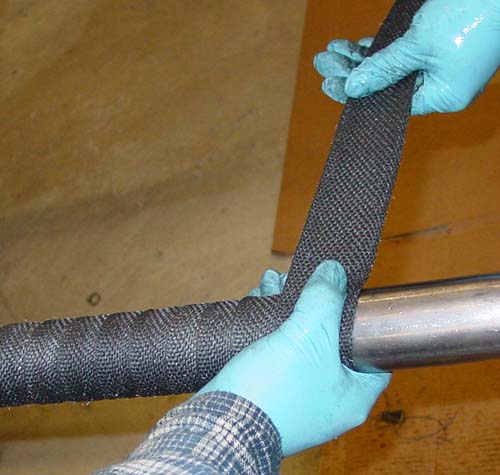
Four hands are better than two. Have a friend help for a tighter wrap.
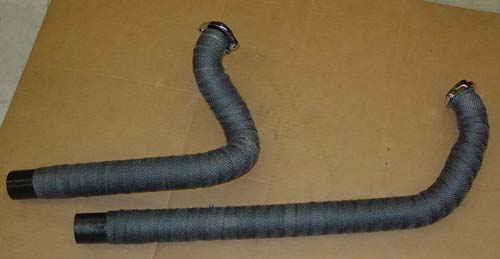
Here’s the finished pipes. Let them air dry and install the bastards.
Note: this stuff must cure, when you start up the first time, it’s goingto smoke and smell real bad. Let your scooter run a few minutes and shut it down. I prefer to cure it (let it set and cool) and then get in the wind to finish the curingprocess. Due to higher exhaust velocity, it is advised to check the jetting after you run it. You can go leaner with the wrap.
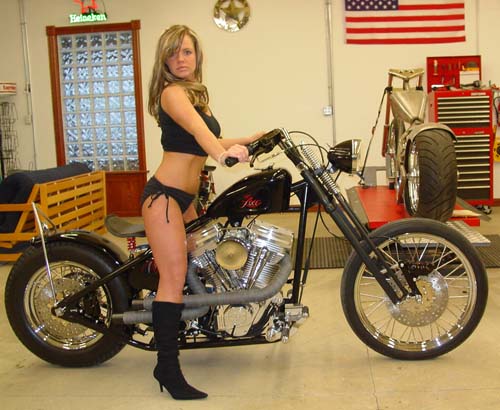

Larry Curik
Lone Star Choppers, Inc.
(618) 406-1554
Larry@lonestarchoppers.com
Lonestarchoppers.com
7858 Andy Road
Waterloo, Illinois 62298